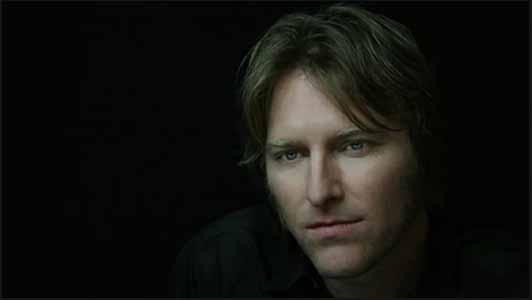|
Click here to return to the main site. Tyler Bates (Composer)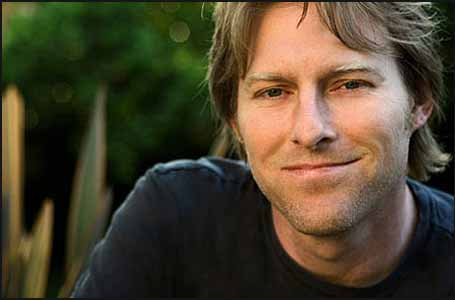 Los Angeles born composer Tyler Bates was inspired early on by a breadth of musical impressions that ranged from John Coltrane to Chopin, and the rock operas Hair and Jesus Christ Superstar. His ability to create worlds of atmospheric soundscapes fused with traditional orchestra led to scores for Zack Snyder's Dawn of the Dead and 300 movies. Bates's authentic approach drew the attention of Dawn of the Dead screenwriter, James Gunn, which led to scores for Gunn's horror-comedy Slither, and his comically tragic superhero classic, Super. Bates and Gunn are currently working on Marvel's Guardians of the Galaxy, which is being filmed to Bates's original themes... Darren Rea: What's the best and worst things about being a composer in today's climate? Tyler Bates: It is a great challenge to help a director tell their story through music. The collaboration can be very inspired and personally gratifying when you're working with great people. It's even better when the film or show is very good! As a film composer, you often work with tremendously talented musicians and interesting artists. This is both humbling and inspiring. It's a real privilege.
DR: Is there much difference between scoring for cinema, TV and video games and which do you find the most challenging and rewarding? TB: The music and overall process for each medium is very different from each other. It's far from easy to write and deliver good or great music. Film and television present very tight time constraints and other challenges i.,e, communication, limited resources, etc, and also the demands of producing enormous amounts of music very quickly. In film, the composer works closely with the director, which is always a great learning experience on so many levels. And when you are successful in the task, it is rewarding, but sometimes just a great sense of relief! [laughs].
DR: Do you remember the first piece of music in a movie or TV show that really impressed you? TB: As a kid - Star Wars. DR: Do you remember the first time you heard your music performed by an orchestra? How did it make you feel?
I have spent my life writing, recording and producing music, so while that was great I had already had many tremendous moments working with different artists. I can't say it trumped everything else in particular, but it was definitely a great moment in my career. The first time I got a bell ringer of a "rush" while working with an orchestra was on Dawn of the Dead. That score was written quickly, and recorded in two days. Everything went as well as I could have hoped for on that film. DR: Can you tell us about Roseland? TB: Roseland is a byproduct of jam sessions Azam Ali, Greg Ellis and I, held up at a studio they used to share many years ago while working together in Vas. They asked me to play music with them to inspire new ideas for a record they were working on. And I was a bit shocked when the two of them came to my studio with a song Azam wrote from taking a 12-bar loop from one of our improvisations. She turned it into a great song idea, which became 'Light the Stars.' This was the first music she wrote in English, and I was very impressed with her lyrics.
Azam works primarily in drone-based music forms, so all of the chord changes in our music were added after she wrote her lyrics and melodies. Also, there is no Melodyne or Auto Tune on her voice. She is a true master. This was all happening from Dawn of the Dead through 300, which Azam contributed to as well. I am really proud of our work together. DR: Of all your work which would you say your most proud of? TB: I really can't say. There are so many different types of moments to consider. I really look at my life and my career as an evolving body of work. I have yet to write anything that makes me feel like I am done progressing, so I will just continue to strive to work towards writing a great score, or a great song, a movie, a book, who knows? I feel like I am just beginning. DR: Who would score the soundtrack to your life?
DR: Are there any director's you'd love to work with? TB: There are many. But honestly, I am focused on the people I am working with right now. I am always thrilled to work with James Gunn. It doesn't matter the size, scope, or genre of what we do together. I am down with anything he has asked me to do, including his "PG Porn" web series! DR: If you got fed up with your career what would your next ideal job be - if money was no problem? TB: I prefer to think about how I can guide my life to become more satisfying. While it is already pretty cool both personally and professionally, it's my duty to think inventively and take action. I am working on a few concepts and opportunities that are not directly related to scoring, all of which could open a portal of endless creative possibility. And even though I am tired from never sleeping due to work and family, I still make music with people outside of my day job.
Marilyn Manson and I recorded music together just last night in my studio. That is never dull! [Laughs]. I sit in at open mic jams when I can, and I also make music with several other friends that is inspiring to me. Interacting with other artists gets me excited. I am looking forward to releasing music with several artists over the next year. DR: What are you working on at the moment? TB: I am working on a new AMC series titled Low Winter Sun. I love the show and the people. And also, Californication. Great people and a fun show. I have been writing music for James Gunn's Guardians of the Galaxy, which he has been filming to. The opportunity to work with him in this fashion is something we have worked towards for years. The ending of Super was filmed to music. James loved how it felt to shoot to the score, so when GOTG came together I was happy to begin writing themes months before filming commenced. It's an exciting opportunity on every level. Way cool.
Return to... |
|---|
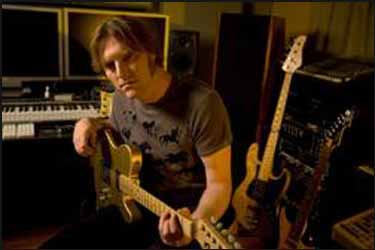 One down side of the job is that score budgets have diminished over the years in relation to the increased overall film production budgets, which makes it more difficult to create the score you imagine to the fullest extent, so your production skills have to be very sharp. It certainly amplifies the pressure to deliver the best score possible in every situation, but there are many things one could do in life that are much less exciting and rewarding, so I'd rather not put my focus on the down side of the profession.
One down side of the job is that score budgets have diminished over the years in relation to the increased overall film production budgets, which makes it more difficult to create the score you imagine to the fullest extent, so your production skills have to be very sharp. It certainly amplifies the pressure to deliver the best score possible in every situation, but there are many things one could do in life that are much less exciting and rewarding, so I'd rather not put my focus on the down side of the profession.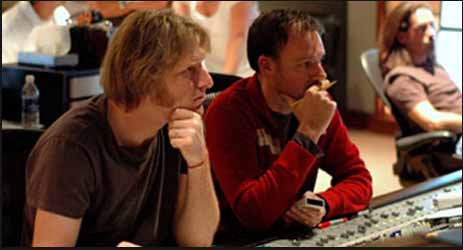 Games are really cool because the people making them are true fans of games. They play them. They discuss them the way guitar players talk shop about gear. The process of scoring a game is very different from a film because you are writing more generally on a macro level, while making musical (and emotional) provisions for every possible game play scenario. More often, it is an opportunity to write truly melodic themes, which is not as common in movies. I really enjoy the people I meet doing games. They are very humble and unaffected by their success. And they are deeply committed to making the best game experience possible.
Games are really cool because the people making them are true fans of games. They play them. They discuss them the way guitar players talk shop about gear. The process of scoring a game is very different from a film because you are writing more generally on a macro level, while making musical (and emotional) provisions for every possible game play scenario. More often, it is an opportunity to write truly melodic themes, which is not as common in movies. I really enjoy the people I meet doing games. They are very humble and unaffected by their success. And they are deeply committed to making the best game experience possible. 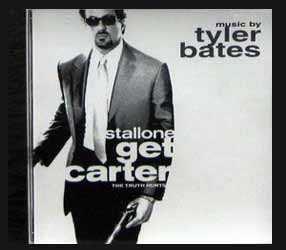 TB: My first true orchestra experience was on Get Carter. It was cool.
TB: My first true orchestra experience was on Get Carter. It was cool.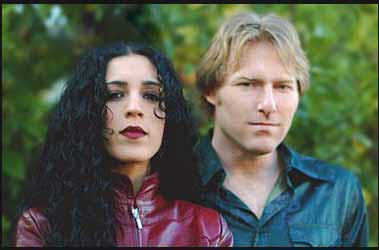 Azam asked me (twisted my arm [laughs]) to create an album's worth of material with her. One thing led to the next, and we made the Roseland album. It was a great collaboration. It was also a very different way to write music for me.
Azam asked me (twisted my arm [laughs]) to create an album's worth of material with her. One thing led to the next, and we made the Roseland album. It was a great collaboration. It was also a very different way to write music for me.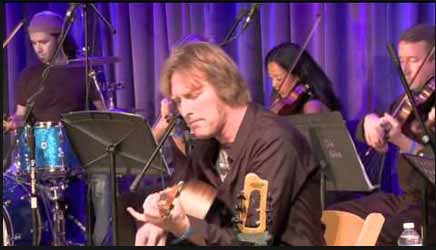 TB: My life is a pretty crazy story. It would have to come from someone who has had a dynamic life experience. Maybe if Tom Waits and Brian Eno got together...
TB: My life is a pretty crazy story. It would have to come from someone who has had a dynamic life experience. Maybe if Tom Waits and Brian Eno got together... 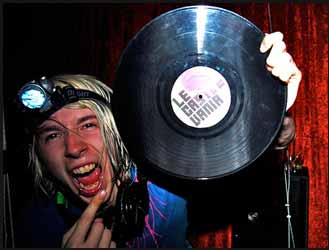 I work regularly with a very talented electronic artist named Le Castle Vania. We connect very naturally. His first personal album will be released 02 September [2013] on Deadmau5e's Mousetrap/EMI label. I am really excited about that.
I work regularly with a very talented electronic artist named Le Castle Vania. We connect very naturally. His first personal album will be released 02 September [2013] on Deadmau5e's Mousetrap/EMI label. I am really excited about that. 